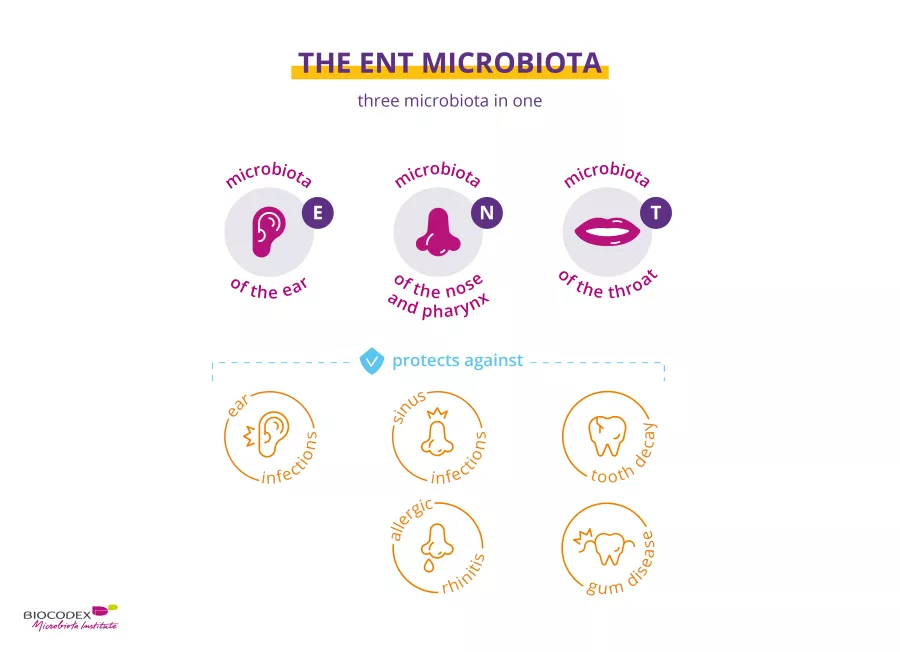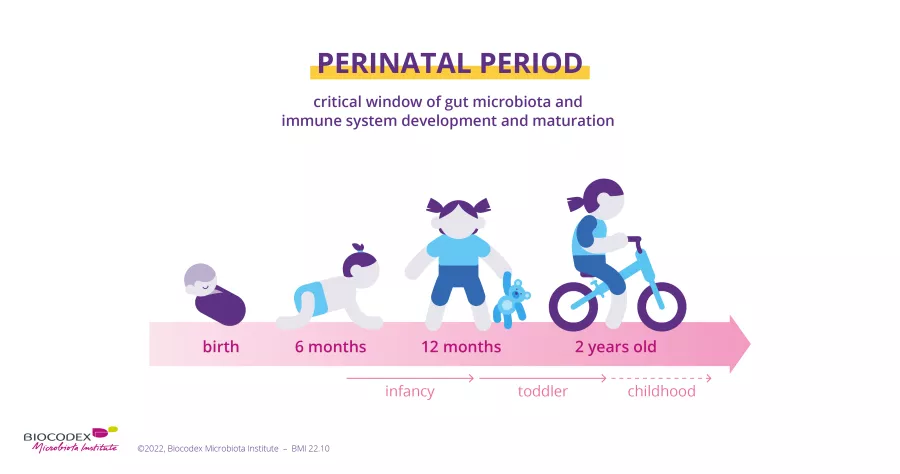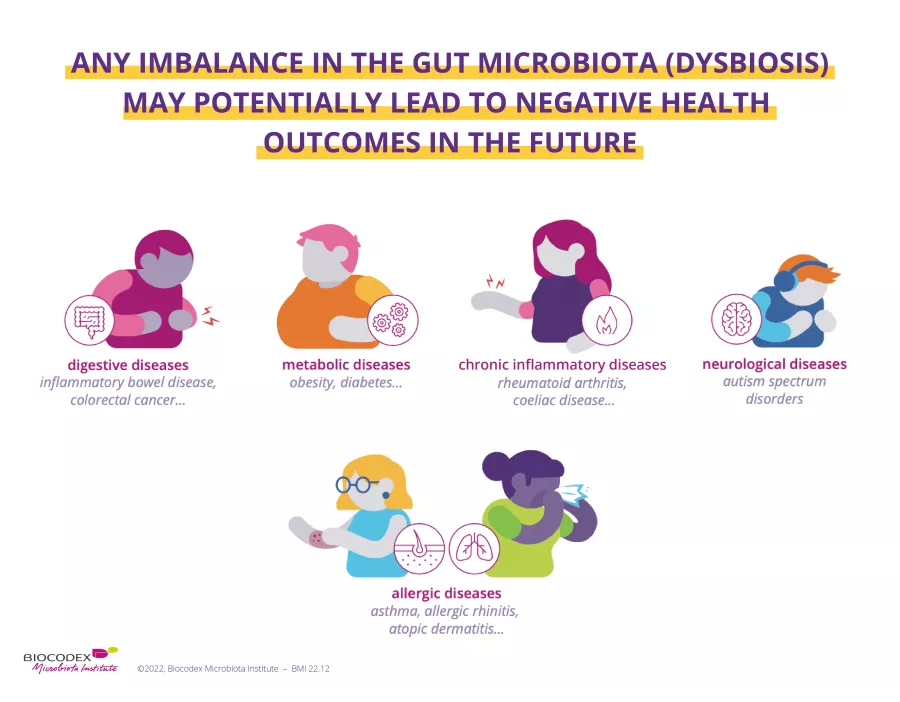What could prevent my child’s respiratory allergies?
Itching, tingling, a runny nose, watery eyes… Every year, the arrival of spring and its high pollen levels indicate that allergic rhinitis is back with a bang. The most common and the most persistent manifestation of respiratory allergy, allergic rhinitis blights the lives of 40% of the global population.1 This particularly complex respiratory disorder results from several genetic and environmental factors, including an imbalance of the gut and ENT microbiota.
Parents, take hope, there are also protective factors.
So how can your child's respiratory allergies be prevented?
- Learn all about microbiota
- Microbiota and related conditions
- Act on your microbiota
- Publications
- About the Institute
Healthcare professionals section
Find here your dedicated section
Sources
This article is based on scientific information

About this article
Microbiota and allergic rhinitis: what is the link?
The symptoms of rhinitis are caused by an overreaction of the immune system to allergens. Allergic rhinitis is described as seasonal (the notorious “hay fever”) when it is linked to the pollen of grasses, trees or herbaceous plants. It is described as perennial when it is caused by allergens present throughout the year (dust mites, animal hairs, molds).2
40% Allergic rhinitis is thought to affect up to 40% of the global population with a high prevalence
This disease is associated with an imbalance of the ENT microbiota (ear-nose-throat) and of the gut microbiota, also known as “ (sidenote: Dysbiosis Generally defined as an alteration in the composition and function of the microbiota caused by a combination of environmental and individual-specific factors. Levy M, Kolodziejczyk AA, Thaiss CA, et al. Dysbiosis and the immune system. Nat Rev Immunol. 2017;17(4):219-232. ) ”.
Some studies report disparities in the composition of the gut microbiota between people suffering from acute episodes of seasonal allergic rhinitis and non-allergic individuals.3 One study in children4 reveals that the diversity of the nasal microbiota is reduced when they are suffering from rhinitis, with a specific bacterial signature that reflects the respiratory disease and its severity level.
Gut microbiota: still many things to be discovered
Protective factors against allergic rhinitis?
It would seem that exposure to (sidenote: Microorganisms Living organisms that are too small to be seen with the naked eye. They include bacteria, viruses, fungi, archaea and protozoa, and are commonly referred to as “microbes”. What is microbiology? Microbiology Society. ) in early childhood is beneficial for the prevention of allergies. Contrary to received ideas, living in an aseptic environment does not necessarily offer protection.
In fact, some studies report that house dust might protect against allergies.5 Living in the countryside is also thought to be beneficial, thanks to the farming environment that suppposedly shapes the development of the gut microbiota.6 Finally, living with others also has its benefits and may prevent the occurrence of the allergy: researchers have thus observed that in children without siblings attending a kindergarten, there is a significantly reduced risk of allergic rhinitis, compared to children without siblings who are kept at home.7 Faced with allergic rhinitis, hurrah for large families!
The importance of the first 1000 days of life
This period from conception to 2 years of age is critical for infant growth and development.8 In fact, it is during this time window that colonization of the gut microbiota begins and that the immune system starts to develop and mature.
Antibiotics, delivery method, diet... all these factors that impact and destabilize the gut microbiota can have long-term effects on susceptibility to disease (allergic rhinitis among many others).9
Learn other surprising facts about your health with our quizzes!
On the occasion of World Microbiome Day, Biocodex Microbiota Institute is unlocking the secrets of these fascinating microorganisms that inhabit our bodies. Get the inside scoop and discover the essential role of the microbiota on your health!














